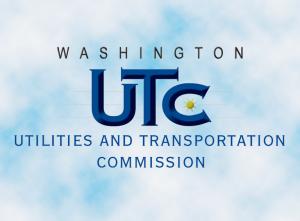Washington Sets Parameters for Stranded Cost Recovery

Although authorizing an electric utility to recover costs from customers who choose to disconnect permanently from the company’s electric services, the Washington Utilities and Transportation Commission has rejected the utility’s proposed method of recovery, which was premised on a set formula applicable to every customer on a uniform basis.
Instead, the commission directed the utility, Pacific Power & Light Company, to calculate the costs of associated stranded equipment and facilities on a customer-specific, case-by-case basis. The commission instructed the company to provide customers leaving its system with the option of paying to remove impacted facilities or purchasing those facilities from the utility.
Under the commission’s plan, if a customer chooses to purchase the facilities, Pacific Power may not collect from that customer more than the amount necessary to recover its investment in the facilities. The issue had arisen due to the impending dissolution of a territorial agreement with a neighboring utility. The commission related that until 1999, Pacific Power and an electric cooperative, Columbia Rural Electric Association (CREA), had operated under an informal service area agreement pursuant to which the entity with facilities closest to a customer would serve that customer.
But, the commission said, Pacific Power had informed it that following a change in management at CREA, the utility and the coop were no longer in agreement on territorial matters. Both Pacific Power and CREA acknowledged that they have been working toward a formal, long-term agreement since 1999 but had been unable to successfully negotiate such an arrangement. Pacific Power stated that 1999 marked the first time that customers had begun requesting permanent disconnection from the utility’s system in order to take service from the co-op.
Given the standoff on the territorial agreement, Pacific Power had asked for approval for certain tariff amendments to enable it to recover costs associated with the assets now stranded by a customer’s departure. The utility suggested new terms that would require an exiting customer to pay a stranded cost recovery fee (SCRF) in addition to the costs associated with whichever of two departure options the customer selected.
The first option would have a departing customer pay the “actual cost of removal” of the facilities used to provide service to that customer, based on an estimate prepared by the company inclusive of the net book value (NBV) of the assets to be removed, less the salvage value of those assets — prior to permanent disconnection. T
he second option would allow the departing customer to purchase the facilities, in lieu of removal, at fair market value (FMV). The customer would then assume ownership of, and liability for, the facilities once purchased. Departing customers would be required to pay the SCRF prior to permanent disconnection. While conceding that Pacific Power is facing a unique situation — i.e., the loss of customers in its traditional service area to a co-op after nearly 100 years of operation — the commission found that even though establishment of legally defined service territories is a legislative responsibility, the current lack of well-defined service areas within Washington puts the concept of a utility’s obligation to serve at risk.
The commission thus concluded that despite a lack of authority to establish service territories, it was nevertheless incumbent on it to enforce the “regulatory compact,” which ensures that regulated utilities are able to recover the prudently incurred costs of providing statutorily required service, and to apply the principles of cost-based rate making, which assigns costs to customers who cause them.
As to Pacific Power’s SCRF proposal, the commission held that although the utility does have a right to collect the stranded costs, the utility’s request to predicate recovery on FMV would likely result in a gain on the sale of the assets, which would give the company more than it should be entitled to under the circumstances. That is, the commission said, current rate practice provides that if a customer stays on a system, the company should recover only the NBV of its facilities. The commission also found that while the record supported Pacific Power’s claim that it incurs stranded costs when customers permanently disconnect from its system, the company had not met its burden of proof that the proposed revenue multiplier it used in calculating the SCRF was just and reasonable.
More specifically, the commission determined that the proposed multiplier failed to account for such time-sensitive factors as
- the avoided costs created by a particular customer departing the system;
- more recent and more granular cost-of-service valuations;
- the specific infrastructure involved; and
- the customer’s current load profile.
The commission thus ruled that in accordance with its rate-making principles, the utility is entitled to recover only the NBV of any facilities sold to a departing customer upon permanent disconnection. It stated that recovery of the NBV of the facilities will ensure that company shareholders receive the full return of their investment in those assets without creating a windfall that violates the tenet of cost-based rate making.
The commission stressed that while Pacific Power is entitled to recover associated stranded costs when a customer permanently exits from its system, the calculation of such costs must be on a case-by-case basis rather than depend on a particular methodology set forth in service tariffs. Washington Utilities & Transportation Commission v. Pacific Power & Light Co., Docket UE-161204, Order 06, Oct. 12, 2017 (Wash.U.T.C.).



